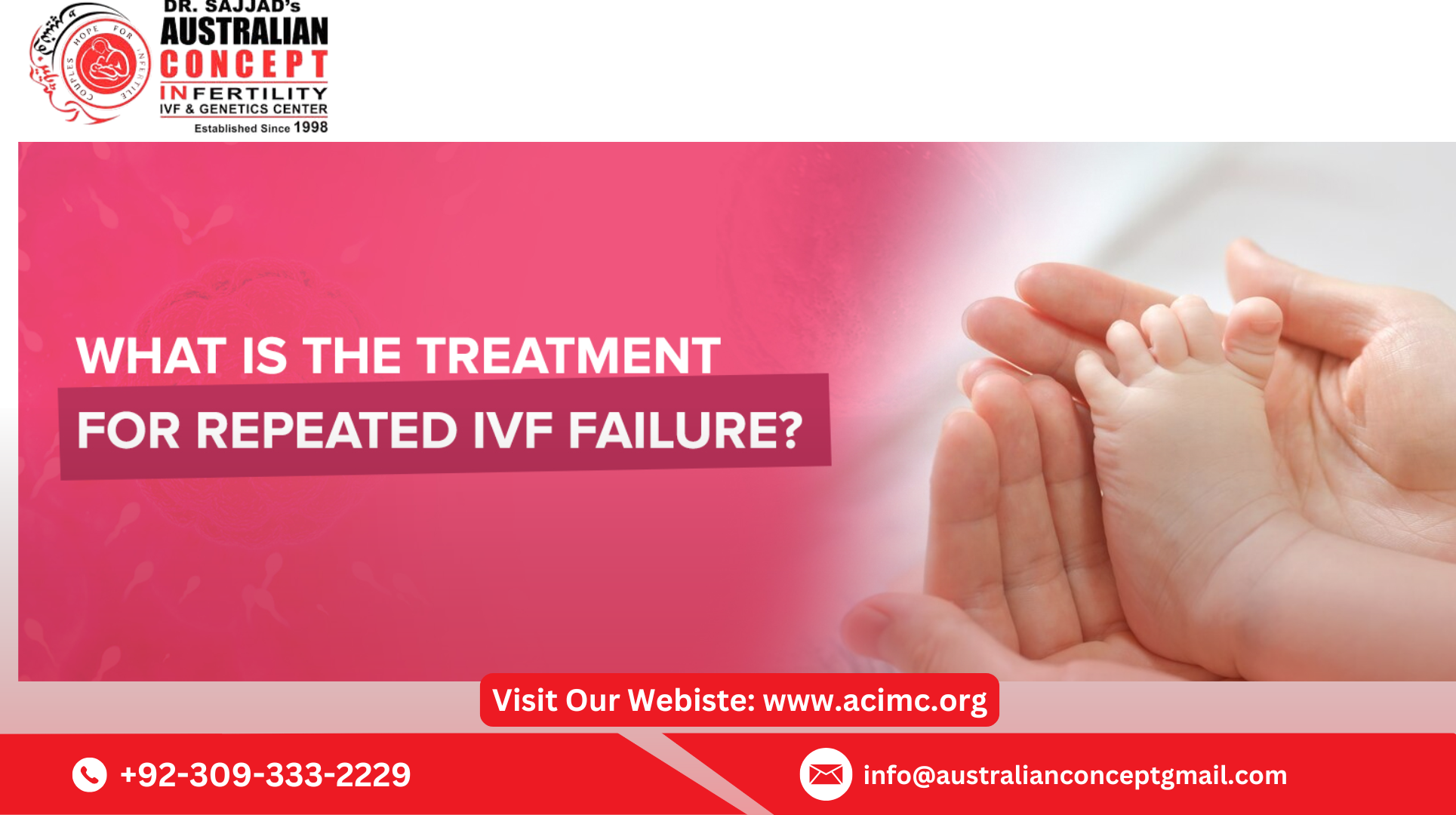For couples trying to conceive through IVF, repeated failures can feel emotionally devastating and physically exhausting. The hope, the procedures, the anticipation only to receive negative results again—can be one of the hardest parts of the fertility journey. But repeated IVF failure does not mean the end of the road. In fact, it often signals the need to explore more advanced reproductive techniques, such as ICSI treatment (Intracytoplasmic Sperm Injection).
What is ICSI?
ICSI stands for Intracytoplasmic Sperm Injection. It’s an advanced fertilization technique used as part of IVF treatment. The key difference between traditional IVF and ICSI lies in the method of fertilization.
In standard IVF, thousands of sperm are placed in a dish with an egg, and fertilization occurs naturally. However, in ICSI, a single, healthy-looking sperm is selected and directly injected into the egg using a fine needle. This method bypasses many barriers that sperm may face, particularly in cases of male infertility.
While originally designed to help overcome severe male infertility, ICSI has gained broader application—especially for couples who have faced repeated IVF failures despite normal sperm analysis.
Understanding Repeated IVF Failure
Repeated IVF failure is typically defined as two or more unsuccessful IVF cycles, where good-quality embryos fail to implant and result in pregnancy. There are many possible reasons for these failures:
- Poor egg or sperm quality
- Genetic abnormalities in the embryo
- Inadequate fertilization
- Uterine or endometrial issues
- Implantation failure
- Immunological or hormonal imbalances
- Unidentified factors (unexplained infertility)
Identifying the exact reason can be difficult, and in many cases, couples are left with few answers. This is where advanced techniques like ICSI can be a game changer.
How ICSI Can Help After Repeated IVF Failure
1. Overcoming Fertilization Issues
One of the most common causes of IVF failure is poor or failed fertilization. In some cases, even though the sperm count and motility appear normal, fertilization does not happen naturally in the lab. This could be due to subtle functional issues in the sperm or problems with the egg’s outer layer (zona pellucida).
ICSI circumvents this issue by directly injecting the sperm into the egg, ensuring fertilization occurs. For couples whose embryos consistently fail to form in IVF cycles, ICSI provides a precise and controlled method to initiate embryo development.
2. Improving Embryo Quality
Sometimes, embryos created through standard IVF may not be viable enough for implantation due to poor-quality fertilization or early-stage defects. With ICSI, the fertilization process is more controlled and monitored, which can lead to better-quality embryos.
By choosing the best sperm under a microscope and injecting it into the egg, embryologists can improve the likelihood of producing genetically healthier embryos that have a higher chance of implantation and growth.
3. Addressing Male Infertility
Male infertility isn’t always obvious. Even if semen analysis appears normal, sperm may have DNA fragmentation, poor morphology (shape), or lack the ability to penetrate the egg. These subtle issues often go undiagnosed until multiple IVF failures occur.
ICSI helps overcome these challenges by selecting the most structurally normal sperm and injecting it directly into the egg, bypassing many natural barriers. It’s especially helpful when sperm motility, count, or function is questionable—even when standard tests show average results.
4. Assisting with Frozen or Low-Quality Sperm
In certain cases, sperm must be retrieved through surgical procedures such as TESA or PESA due to blockage or absence of sperm in the ejaculate. These sperm samples are often fewer in number and less motile, making them less effective in traditional IVF.
ICSI allows these rare sperm to be used effectively, providing an opportunity for fertilization that would otherwise be impossible with regular IVF.
5. Reducing the Risk of Unexplained IVF Failure
For many couples, repeated IVF failure comes with no clear diagnosis. Everything seems fine—normal hormone levels, healthy uterine lining, regular ovulation, good embryo formation—yet implantation doesn’t occur.
In such cases, ICSI offers a new approach that may reveal underlying fertilization or sperm-related issues not detected in routine tests. Even in unexplained infertility, ICSI has shown promising outcomes, giving couples a renewed chance at success.
When is ICSI Recommended After IVF Failure?
While ICSI isn’t automatically suggested after the first failed IVF cycle, it becomes a strong consideration after two or more unsuccessful attempts—especially if:
- Fertilization rates in previous cycles were low or zero
- The male partner has borderline semen analysis results
- There’s a history of failed embryo development
- There is evidence of sperm abnormalities not revealed in standard tests
- The couple has unexplained infertility with no clear reason for failure
Fertility specialists may also recommend advanced testing alongside ICSI, such as Preimplantation Genetic Testing (PGT) to screen embryos for chromosomal abnormalities, or endometrial receptivity testing to determine the best time for implantation.
ICSI Success Rates After IVF Failure
ICSI success rates depend on several factors, including the woman’s age, ovarian reserve, sperm quality, and overall health. However, studies show that ICSI can significantly improve fertilization rates and increase pregnancy chances for couples who’ve faced multiple IVF failures.
- Fertilization success with ICSI is around 70–85% of mature eggs.
- Clinical pregnancy rates range from 35–50%, depending on patient profile.
- Couples with male factor infertility tend to benefit the most from ICSI.
It’s important to understand that while ICSI enhances fertilization, it doesn’t guarantee implantation or pregnancy. But when used correctly, especially in well-equipped fertility clinics, it can drastically improve the odds.
Emotional and Psychological Support Matters
The journey through repeated IVF failures can take a toll on mental health. Anxiety, depression, and relationship stress are common. Choosing ICSI after multiple disappointments can reignite hope, but it’s also important to address the emotional burden.
Support groups, fertility counseling, and open communication with healthcare providers can help couples stay strong through the process. Fertility clinic that offer emotional support alongside treatment often see better overall outcomes.
Choosing the Right Fertility Center
Success with ICSI is highly dependent on the experience and skill of the medical team and the lab conditions. That’s why choosing a reputable fertility center is essential.
Look for a clinic that offers:
- State-of-the-art embryology labs
- Experienced embryologists and fertility specialists
- Transparent communication and customized treatment plans
- High success rates with ICSI after IVF failure
Institutions like Australian Concept Infertility Medical Center are known for their expertise in ICSI treatment and managing complex infertility cases. Their personalized approach and advanced reproductive technology make them a trusted choice for couples facing repeated IVF challenges.
Final Thoughts
By offering a more precise method of fertilization, ICSI addresses underlying sperm-related issues, improves embryo quality, and increases the chance of successful implantation.
While it may not solve every case, ICSI has brought renewed hope and positive outcomes for countless couples who once thought pregnancy was out of reach. If you’ve been through multiple failed IVF cycles, talk to your fertility specialist about whether ICSI is the right next step for you.



